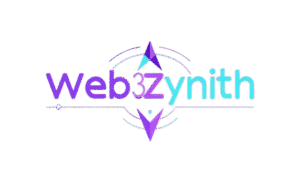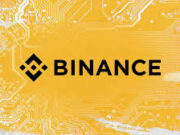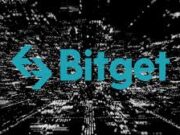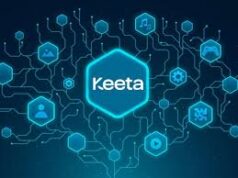As blockchain technology continues to reshape industries, Blockchain-as-a-Service (BaaS) is emerging as a game-changer, making it easier than ever for businesses to harness the power of decentralized systems. By offering cloud-based blockchain solutions, BaaS eliminates the technical complexities and high costs of building and maintaining blockchain infrastructure. With industry giants like Microsoft and Amazon leading the charge, BaaS is driving adoption across sectors, from supply chain to healthcare. Here’s why BaaS is a hot topic in 2025 and how it’s democratizing blockchain for businesses of all sizes.
What is Blockchain-as-a-Service (BaaS)?
BaaS is a cloud-based model that allows businesses to develop, deploy, and manage blockchain applications without the need to build their own infrastructure. Think of it as a turnkey solution: companies can leverage pre-built blockchain frameworks hosted on platforms like Microsoft Azure or Amazon Web Services (AWS), paying only for the resources they use. This approach mirrors Software-as-a-Service (SaaS), making blockchain accessible to organizations without deep technical expertise or significant capital investment.
Why BaaS is Driving Blockchain Adoption
The blockchain market is projected to grow at an impressive 59.9% CAGR from 2023 to 2030, and BaaS is a key driver of this expansion. Here’s why:
- Ease of Use and Cost Efficiency
Setting up a blockchain network from scratch requires specialized knowledge, expensive hardware, and ongoing maintenance. BaaS removes these barriers by providing pre-configured environments where businesses can deploy applications quickly. For example, Amazon’s Managed Blockchain, built on Hyperledger Fabric or Ethereum, allows companies to create scalable blockchain networks in minutes, reducing costs and complexity. This accessibility enables small and medium-sized enterprises (SMEs) to experiment with blockchain without breaking the bank. - Fostering Innovation
By simplifying access to blockchain technology, BaaS encourages innovation across industries. Companies can focus on developing applications rather than wrestling with technical infrastructure. Whether it’s creating smart contracts, tracking supply chain data, or securing financial transactions, BaaS provides the tools to build tailored solutions. This flexibility is attracting startups and established firms alike, fueling a wave of blockchain-based innovation. - Scalability and Integration
BaaS platforms are designed to scale seamlessly, allowing businesses to adjust resources as their needs grow. They also integrate with existing cloud services, such as AWS’s data analytics tools or Azure’s AI capabilities, enabling companies to combine blockchain with other cutting-edge technologies. This interoperability is critical for creating robust, future-proof solutions.
Real-World Applications of BaaS
BaaS is unlocking blockchain’s potential across diverse industries, proving its versatility beyond cryptocurrencies. Here are some standout use cases:
- Supply Chain Transparency
Companies like Walmart use IBM’s BaaS platform, built on Hyperledger Fabric, to track food products from farm to store. By recording every step on a blockchain, Walmart ensures transparency, reduces fraud, and speeds up recalls during safety issues. BaaS makes this process accessible to smaller suppliers, leveling the playing field. - Healthcare Data Security
In healthcare, BaaS enables secure sharing of patient records while maintaining privacy. Microsoft Azure’s BaaS offering supports platforms like Corda, allowing hospitals to create interoperable systems for managing sensitive data. This ensures compliance with regulations like HIPAA while improving efficiency. - Financial Services
Banks and fintech companies are using BaaS to streamline cross-border payments and trade finance. For instance, R3’s Corda, available through AWS, powers secure, real-time transaction settlements, reducing costs and delays compared to traditional systems. - Real Estate and Tokenization
BaaS is facilitating the tokenization of assets like real estate. Platforms like Polymath, integrated with BaaS providers, allow businesses to tokenize property deeds, enabling fractional ownership and increasing liquidity. A recent example is BalconyTech’s partnership with Bergen County, New Jersey, to digitize $240 billion in real estate records on Avalanche, showcasing BaaS’s role in large-scale projects.
Leading Players in BaaS
Several tech giants are driving the BaaS revolution, each offering unique frameworks:
- Amazon Managed Blockchain: Supports Hyperledger Fabric and Ethereum, enabling businesses to build scalable networks for supply chain, finance, and more. Its integration with AWS services like Lambda and S3 makes it a go-to for enterprises.
- Microsoft Azure Blockchain Service: Offers support for platforms like Corda and Ethereum, with a focus on secure data sharing for industries like healthcare and logistics.
- IBM Blockchain Platform: Built on Hyperledger Fabric, IBM’s BaaS is widely used for supply chain and trade finance, with clients like Walmart and Maersk.
- Google Cloud and Oracle: Both are entering the BaaS space, offering solutions for developers to build decentralized applications with seamless cloud integration.
Challenges and Opportunities
While BaaS is a powerful enabler, it’s not without challenges. Interoperability between different blockchain protocols remains a hurdle, as businesses may need to integrate multiple platforms. Additionally, regulatory uncertainty in some regions could slow adoption, particularly for industries like finance. However, these challenges also present opportunities:
- Standardization Efforts: Projects like Chainlink’s CCIP are improving cross-chain interoperability, which could enhance BaaS platforms.
- Regulatory Clarity: The EU’s MiCA regulation, effective December 2024, is providing a framework for blockchain adoption, encouraging businesses to explore BaaS.
- Education and Awareness: As BaaS providers educate businesses about blockchain’s benefits, adoption is likely to accelerate, especially among SMEs.
Why Blog About BaaS Now?
The rise of BaaS is a perfect topic for your 2025 blog because it bridges the gap between blockchain’s technical complexity and real-world utility. By highlighting case studies like Amazon’s Managed Blockchain or IBM’s supply chain solutions, you can show readers how blockchain is becoming accessible to businesses of all sizes. Here are a few blog ideas to engage your audience:
- Case Study Deep Dive: Explore how a company like Walmart uses IBM’s BaaS to improve supply chain transparency and invite readers to discuss other potential use cases.
- SME Focus: Explain how BaaS levels the playing field for small businesses, with examples of startups using BaaS to tokenize assets or secure data.
- Future Predictions: Discuss how BaaS could evolve with AI and IoT integration, encouraging readers to share their thoughts on blockchain’s role in the next decade.
Final Thoughts
Blockchain-as-a-Service is revolutionizing how businesses adopt decentralized technologies, making blockchain accessible, scalable, and cost-effective. With a projected market growth of 59.9% CAGR through 2030, BaaS is poised to drive the next wave of blockchain innovation. From supply chain transparency to secure healthcare data, platforms like Amazon Managed Blockchain and Microsoft Azure are empowering companies to build trust and efficiency into their operations. For your blog, BaaS offers a compelling narrative about blockchain’s practical impact—share these insights and spark a conversation about the future of decentralized solutions!
What do you think about BaaS’s potential to transform industries? Drop your thoughts in the comments, and let’s discuss how blockchain is reshaping the business world!




























BaaS’s reliance on centralized cloud providers like AWS, undercuts blockchain’s decentralization ethos
You really clarified how BaaS works! I now get how platforms like AWS work